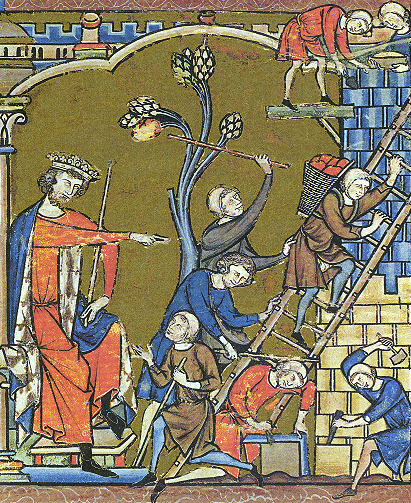There were many clocks.
In the deep past, archeology was done with shovels in the ground. But these days, most of an archeologist’s time is spent trying to figure out how to read the data off of a recovered device. The capacity to dream up novel storage devices and mathematically esoteric encryption algorithms is apparently a deeply ingrained part of humanity’s DNA. Every version of humanity.
It was from these artifacts, of course, that we know of the first clocks. The Hillis Era clock is the earliest we know about, though there are arguments about whether this Hillis was an actual person, and considerable debate as to whether he or she was of importance outside of their signature on the clock.
The Hillis clock was found in the reclaimed land west of the city of Dawn. This land of verdant valleys and solar mountains lies well within the boundary of New Calidia. It was the marshaling of a solar mountain that led to the discovery of the Hillis clock. When the self-replicating mineral constructors were released onto an un-reclaimed mountain west of Dawn, they did their normal task of terraforming a raw rock landscape to solar rock. A careful tech noticed one particular mountain had a wattage yield far below normal. An investigation quickly led to the discovery of a buried chamber.
The Hillis clock was an interesting specimen. Mechanical in operation, it was made from ceramics, titanium, quartz, and other materials. As best we could work out, it used a titanium pendulum that was synchronized to the midday nadir of the sun. But what made it special was that it was clearly a clock that was designed to count time for a very long time. We know this from the translations of engravings around the clock. These describe how the clock was built to last ten thousand years. Apparently, the humans of this era considered this a long time.
The clock makers had considered numerous challenges. They had built it such that only primitive technology was needed to repair the clock. They had planned for restarts. But they made one fatal mistake.
Clocks’ jobs are a paradox. On the one hand, they are deeply conservative, striving to repeat, unendingly, their job. And yet every tick they present a constant newness, a previously unrecorded set of dates and time digits. It’s easy to focus on the conservative process, how to make it work. But the change is a warning, the future keeps rushing at you, there is always a newness coming into the world.
In the Hillis era, we think the newness was a radical form of religion. Best as we can surmise, a mass hysteria took over this era, insisting that one could live forever by in fact stopping clocks. If there were no clocks, would there be time? This era tried a societal experiment, and so the Hillis clock was covered up and deserted. Worse, the era seems to have worked to actively erase any memory of the clock. Flailing around to stop time, a society obsessed with eliminating clocks or even the memory of clocks. It must have been an interesting time to live through.
Future eras, of course, suffered similar fates for their clocks. There was the distributed Arax mechanism, with its complicated, obfuscated consensus algorithm, but which failed because trust is how society remains a phase of complex matter. And the orbital platforms of Listo, whose rare metals ended up being its undoing by pirates.
Of course, today we are wiser. We have seen the fatal blindness of all this externalism. All others have tried to build a clock, but we know this is doomed to fail because it makes our objective external to ourselves. The only way for a society to produce a clock of a long now is not to build a clock, but to become the clock itself.
So today we gather and don’t gather to update the new digits in now. A wreathing, squirming mass of individuals, diversified for robustness, going through a ten thousand year cycle that flips yet another digit in our collective DNA. Humanity at last achieving its immortality. By becoming the clock.
